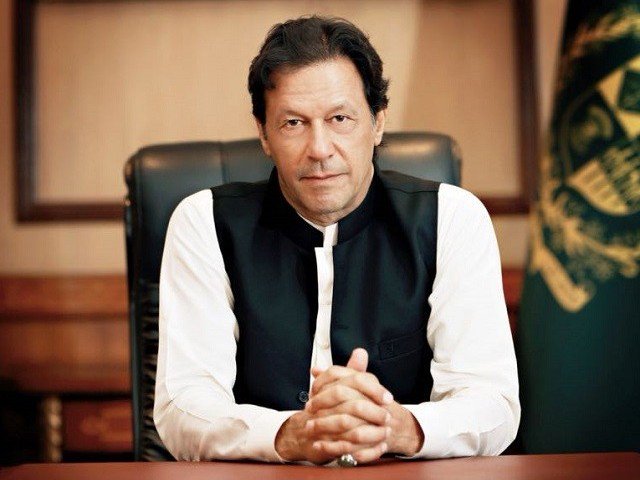
Pakistan’s unique lax strategy
These new relaxations increase the responsibility of the people to adhere to precautionary norms more strictly
There is not a single example of any developing country has transformed itself into a developed one when its leaders have pursued policies based on instinct and personal whims. This holds true for democratic and communist countries as it does for autocratic regimes. In the recent past, the world has witnessed China, South Korea, Taiwan, Vietnam, and Malaysia progress rapidly when their leaders prioritised strengthening institutions and adopted long-term strategies. Besides, they placed great emphasis on science-based education and the provision of universal health services. These policies accelerated economic growth and radically transformed these societies to cope with the challenges of the modern world.
In sharp contrast, Pakistan’s military dictators and democratically elected leaders have formulated national policies and taken major decisions mostly on the basis of personal whims and preferences. With one exception — in the light of the threat posed by India and the general regional instability — both military and civilian governments have utilised appropriate national forums and pursued a unified defence policy, and devoted requisite resources for defence and internal security. Of course, there is a counter-argument that spreading meagre national resources equitably on education, health and infrastructure along with defence strengthens a nation to ward off aggression.
Internal political dissensions are hurting Pakistan’s international image with its attendant consequences. It is emboldening India to pursue its extreme hostility toward Pakistan and continue its savage and inhuman treatment of Kashmiris and Muslims undeterred.
Furthermore, it is preventing Pakistan to formulate a united front against these Indian policies.
Historically, most of our leaders have shown contempt for institutions and democratic practices while taking major decisions. At best, prime ministers or presidents would get the approval of the cabinet or consult a few ministers but that is more as a formality. Although strategic, political, economic and foreign policy decisions demand serious deliberations in parliament, cabinet, and other constitution mandated forums.
In this regard, Prime Minister Imran Khan is no exception. He has generally shown disdain for participatory democracy and avoids engaging with the opposition as a matter of policy. Consequently, parliament has lost its relevance except as a mere platform for bitter recrimination and point-scoring. This has plunged relations between the government and the opposition to a new low. One recent example speaks volumes of the sharp deterioration of the quality of discourse in parliament. An honourable minister while praising the government’s or PM’s policy of combating Covid-19 went as far as to remark that New York is following Pakistan’s policy of dealing with the virus threat. He may have tried to show his loyalty to the party or his boss but in the process he so blatantly exposed himself. There are many in the cabinet whose primary qualification seems to be making irresponsible and quixotic remarks about political issues and opponents.
The constant feud between the Centre and Sindh is a classic example of how a federation should not be run. This, as expected, has led to differences and lack of coordination between the federal government and Sindh not only on dealing with the coronavirus but also on several other national and provincial matters.
At a time when the country is confronted with major challenges the people expect from the PM and other major opposition leaders to address the economic, political, and security issues in a more integrated manner, and accord high priority to serious, life-threatening matters posed by the spread of Covid-19.
Political party leaders should be healers of national wounds by playing a unifying role so that the country could be effectively steered through the present storm.
Unfortunately, the exact opposite of this is happening as the PM has made it a matter of personal ego on not heeding to any suggestion of engaging with the opposition. His strident responses may find appreciation in his party but could make national matters more complex to resolve.
Imran Khan’s compassion for the poor and his earnest desire to combat corruption in the country is laudable and has the support of all well-meaning people. However, the question is: should it not be left to the dedicated institutions — the judiciary, NAB, and investigating agencies? The moment government leaders or investigating agencies turn to the media, it creates an impression, whether real or false, that there is more to it than the pursuit of justice.
Similarly, when the government takes a decision on relaxing precautionary measures against Covid-19 when it is surging, contrary to the advice of reputed epidemiologists and virologists, the risk factor increases manifold. There is also not a single example of any country pursuing this strategy.
The Chief Justice showing concern for the livelihood of the business community and its employees has reinforced the government’s policy by giving additional concessions to them. He has allowed shops and malls to remain open on Saturdays and Sundays too and has ordered restrictions on public transport and railways to be lifted. The Supreme Court’s order has given a new and unique dimension to Pakistan’s decision making on matters of public health, especially when the pandemic is threatening the life and well-being of millions. In case, the pandemic takes a turn for the worse the question is: who would share the responsibility for these decisions? Time and again we have to remind ourselves that the world is facing a crisis the like of which it has never experienced before.
These new relaxations increase the responsibility of the people to adhere to precautionary norms more strictly. So far, the response of the public on these letups has been disappointing and it would be wishful thinking to assume that it would get any better in the coming days. A sense of fatalism seems to prevail in Pakistan. This is a dangerous trend as it could lead to despondency. It would be difficult to re-impose a strict regime once casualties mount.
Medical doctors and the nursing cadre are obviously very skeptical about these decisions and fear that an increase in cases could overwhelm the entire medical infrastructure. They are already overstretched; any additional burden would be unmanageable.
Published in The Express Tribune, May 20th, 2020.
Like Opinion & Editorial on Facebook, follow @ETOpEd on Twitter to receive all updates on all our daily pieces.










COMMENTS
Comments are moderated and generally will be posted if they are on-topic and not abusive.
For more information, please see our Comments FAQ